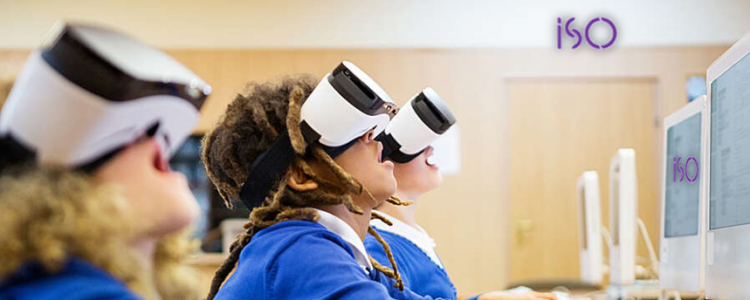
The COVID-19 pandemic has changed how many millions of people around the world are being educated. Online learning has become the norm. Innovative technologies, such as virtual reality (VR), can transform learning by simulating what real-world experiences like field trips can offer.
Yet VR also raises questions around health and safety, such as physical discomfort, eyesight problems, photosensitivity and more. ISO has just published guidelines aimed at resolving these issues in the education setting and helping to ensure such technologies work effectively, safely and to their full potential.
The speed of development of VR, we can expect it to be a valuable and widely used tool in the learning sector. It is important, therefore, that health aspects are taken into account.
As we expect VR to be used more and more in schools, it is essential that safety guidelines are followed. ISO/IEC TR 23842 serves to do just that.
ISO/IEC TR 23842, Information technology for learning, education and training – Human factor guidelines for virtual reality content:
Part 1: Considerations when using VR content, details what users should take into account when consuming VR content in the learning, education and training sector. It helps to reduce any confusion between real and virtual and assists learners in using the technology effectively.
Part 2: Considerations when making VR content, will help content makers by outlining considerations related to health and learning when developing their product.
Failure to distinguish between virtual and real, for example, can lead to social problems such as reset syndrome, where users confuse the two.
ISO/IEC TR 23842, Parts 1 and 2, were developed by ISO/IEC JTC 1/SC 36, Information technology for learning, education and training, a joint technical subcommittee of ISO and the International Electrotechnical Commission (IEC). Its secretariat is held by KATS.
source:www.iso.org